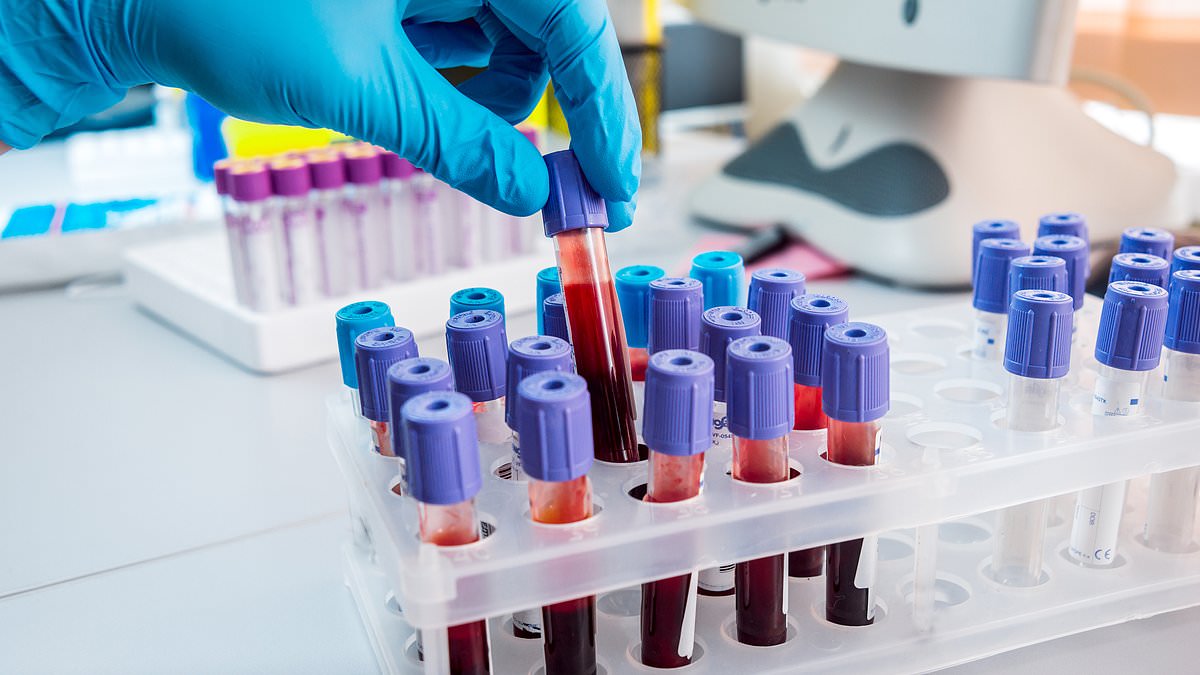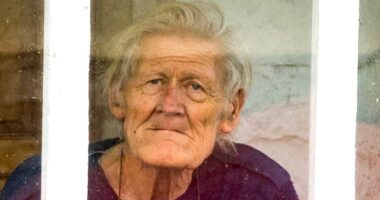A blood test can predict if breast cancer will return years before it shows up on scans – allowing treatment to start before it becomes incurable.
The ‘ultra-sensitive’ test can pick up traces of a tumour’s DNA ahead of a full relapse, when it is far harder to treat.
It was found to be 100 per cent accurate at predicting which patients would see their cancer come back – up to three and a half years ahead of conventional scans.
Doctors say it could have a ‘transformative effect’ on outcomes for breast cancer, saving many of the 11,500 lives a year lost in the UK to the disease.
The ‘liquid biopsy’ uses whole genome sequencing to look for genetic faults in a patient’s DNA, which can be a sign of cancer.

A blood test can predict if breast cancer will return years before it shows up on scans – allowing treatment to start before it becomes incurable (Stock image)
Researchers from the Institute of Cancer Research (ICR), London, conducted the trial on 74 women with different types of early breast cancer.
The test looks for 1,800 mutations in the blood which are released by cancer cells – known as circulating tumour DNA (ctDNA).
It successfully spotted this ctDNA in 11 women – all of whom went on to see their cancer return. None of the other women relapsed.
Blood samples were tested at the point of diagnosis, then again following surgery and chemotherapy. The tests were then repeated every three months for the next year and six-monthly for five years.
On average, the blood test detected cancer 15 months before symptoms appeared or it showed up on scans – the current method used by the NHS to monitor cancer survivors.
The earliest was 41 months before a scan confirmed the diagnosis, according to the results being presented at the American Society of Clinical Oncology conference in Chicago.
All those showing signs of tumour DNA at any point after surgery were found to have a higher risk of future relapse and poorer overall survival.
Lead researcher Dr Isaac Garcia-Murillas, from the ICR, said the findings ‘lay the groundwork for better post-treatment monitoring and potentially life-extending treatment in patients’.

Doctors say it could have a ‘transformative effect’ on outcomes for breast cancer, saving many of the 11,500 lives a year lost in the UK to the disease (Stock image)
He added: ‘Breast cancer cells can remain in the body after surgery and other treatments, but there can be so few of these cells that they are undetectable on follow-up scans. These cells can cause patients to relapse many years after their initial treatment.
‘Ultra-sensitive blood tests could offer a better approach for the long-term monitoring of patients whose cancer is at high risk of returning.’
Other blood tests have also been developed that search for DNA evidence of returning cancer. However, these look for only 16 to 50 mutations in regions of genes which are directly related to disease.
Developed by US-based company Personalis, this new test is around 100 times more sensitive.
Dr Garcia-Murillas added: ‘A more sensitive test is very important for this group of early breast cancer patients as they tend to have a very low amount of cancer DNA in their blood.’
The women who relapsed in the study survived for an average of just over five years.
Researchers said further studies were under way to see if patients could begin treatment as soon as signs of recurrence were detected, potentially preventing the disease spreading and becoming incurable.










